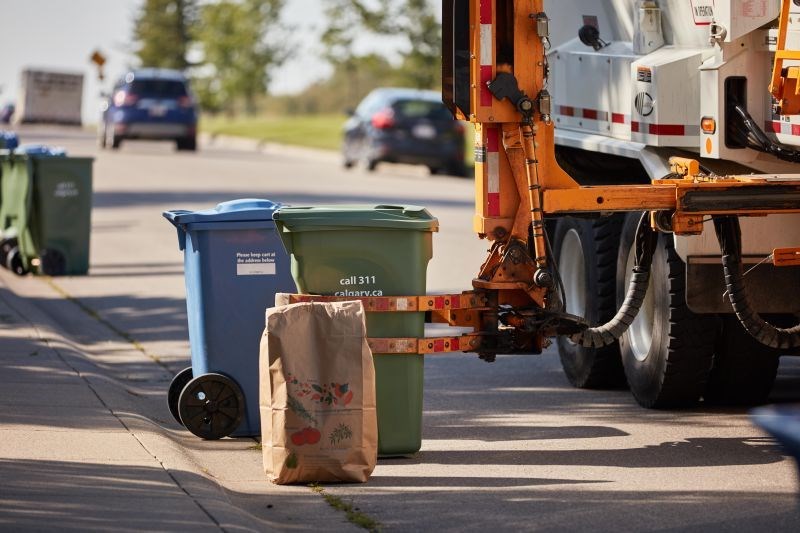THUNDER BAY – Major decisions on a new municipal curbside composting program in Thunder Bay are just around the corner, city council has heard.
Councillors received an update Monday on the development of a green bin program, which must be in place and diverting half of the city’s food and organic waste by 2025, according to provincial policies.
Manager of solid waste and recycling Jason Sherband and Mike Birett from consultant EXP Services Inc. presented to council Monday on the city’s progress and upcoming decision points.
Ontario's Food and Organic Waste Policy Statement requires the city to develop a program for single-family dwellings in the urban service area, but it will likely make sense to also include businesses and multi-residential buildings, the pair told council.
Meeting the provincial requirements will go a long way toward net-zero waste and greenhouse gas emission goals, but also come with major financial implications, Birett warned.
“It’s not an inexpensive program,” he said. “It will have a significant impact on the [property tax] rate. We’ll walk you through those kinds of details to make sure you’re comfortable with them.”
Northern municipalities have been granted more leeway in implementing the new policies – elsewhere in province, cities have to divert 70 per cent of organic waste, and implement the program two years sooner, by 2023.
Administration will return to council in the coming months to seek approval on the design of the green bin program, Sherband said.
A range of options will be evaluated, notably whether to use an automated cart system that mechanically loads bins, the inclusion of businesses and multi-residential units, and the possibility of contracting with a third party to manage the waste collected.
“We don’t have an obligation" to include multi-residential dwellings, said Sherband, “but obviously the multi-[residential] community is significant, and it’s only growing... We’re not obligated to do it, but I think we have to.”
A recommendation for weekly service is likely.
“You typically want to provide service on a weekly basis, because it's, to use the vernacular, the smelly part of the waste stream,” said Birett. “That’s the part we want to keep diverting so that people stay happy.”
In response to a question from Coun. Peng You, he added the program will use locking bins designed to foil interest from wildlife, and encourage residents not to leave them out overnight.
The program heralds major shifts in how Ontario handles its waste. The province has signalled it intends to ban food and organic waste from landfills altogether as early as 2025, Birett said.
“We haven’t seen a lot of discussion of this in recent years,” he said. “Understandably, the province, like everyone else, is focused on dealing with the pandemic. But all expectations are they will revisit this issue after the upcoming provincial election. Early indications are this target may be delayed by several years, but we want you to be aware of the potential for it to occur as early as 2025.”
The move would have implications for a Synergy North-owned generating station at the city’s Mapleward landfill, which generates electricity using methane gas produced by decaying garbage.
“We're undertaking an analysis to determine what the impact would be on landfill gas production from removing the food and organic waste,” Sherband said.
The city will also consider adding an anaerobic digester at Mapleward, he said, using bacteria to break down organic waste.
The green bin program is intended to supplement, not supplant, existing composting efforts.
“I’m a big advocate of backyard composters, I don’t ever see this replacing them,” Birett said. “But the practical reality is... the majority of people only use it in the summertime, whereas a green bin can be used year-round.”
Communication to the public on the changes will be essential in reaching the 50 per cent diversion target, councillors said, with Sherband agreeing public buy-in will be key.
“Part of what we’re going to bring back is not only the education piece, [which] I think we can all agree… is going to be paramount here, but what are some other tools that municipalities use in rolling out these programs to achieve that level of reduction?” he said. “Because I think we all know, just as [with] the blue bag recycling program, not everybody participates or participates to their fullest effect.”
